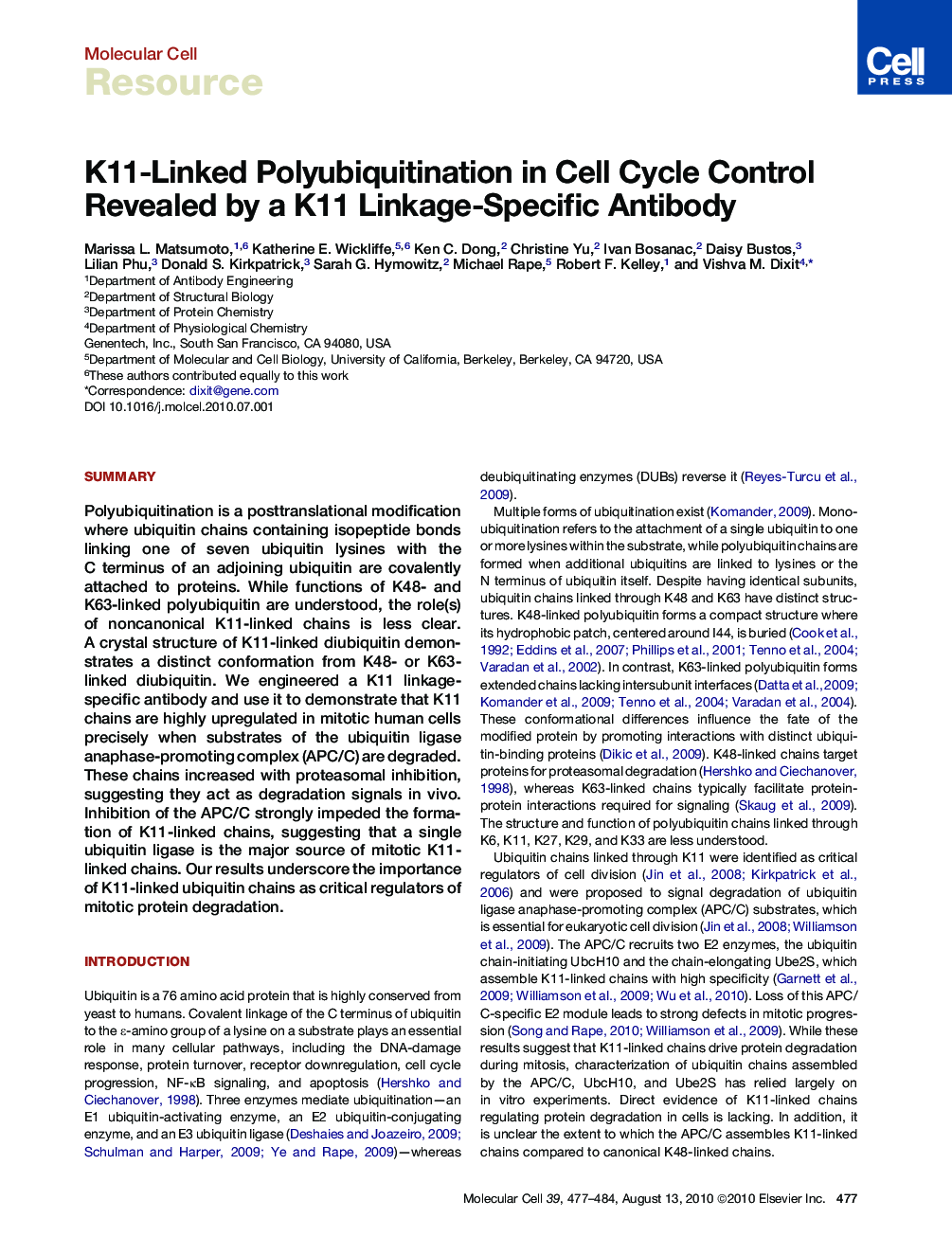| کد مقاله | کد نشریه | سال انتشار | مقاله انگلیسی | نسخه تمام متن |
|---|---|---|---|---|
| 1997049 | 1065536 | 2010 | 8 صفحه PDF | دانلود رایگان |

SummaryPolyubiquitination is a posttranslational modification where ubiquitin chains containing isopeptide bonds linking one of seven ubiquitin lysines with the C terminus of an adjoining ubiquitin are covalently attached to proteins. While functions of K48- and K63-linked polyubiquitin are understood, the role(s) of noncanonical K11-linked chains is less clear. A crystal structure of K11-linked diubiquitin demonstrates a distinct conformation from K48- or K63-linked diubiquitin. We engineered a K11 linkage-specific antibody and use it to demonstrate that K11 chains are highly upregulated in mitotic human cells precisely when substrates of the ubiquitin ligase anaphase-promoting complex (APC/C) are degraded. These chains increased with proteasomal inhibition, suggesting they act as degradation signals in vivo. Inhibition of the APC/C strongly impeded the formation of K11-linked chains, suggesting that a single ubiquitin ligase is the major source of mitotic K11-linked chains. Our results underscore the importance of K11-linked ubiquitin chains as critical regulators of mitotic protein degradation.
► K11-linked diubiquitin adopts a conformation distinct from other diubiquitins
► A K11-linked polyubiquitin-specific antibody was engineered
► UbcH10/Ube2S and APC/C are the major source of mitotic K11-linked chains in vivo
► K11-linked chains act as proteasomal degradation signals in vivo
Journal: - Volume 39, Issue 3, 13 August 2010, Pages 477–484